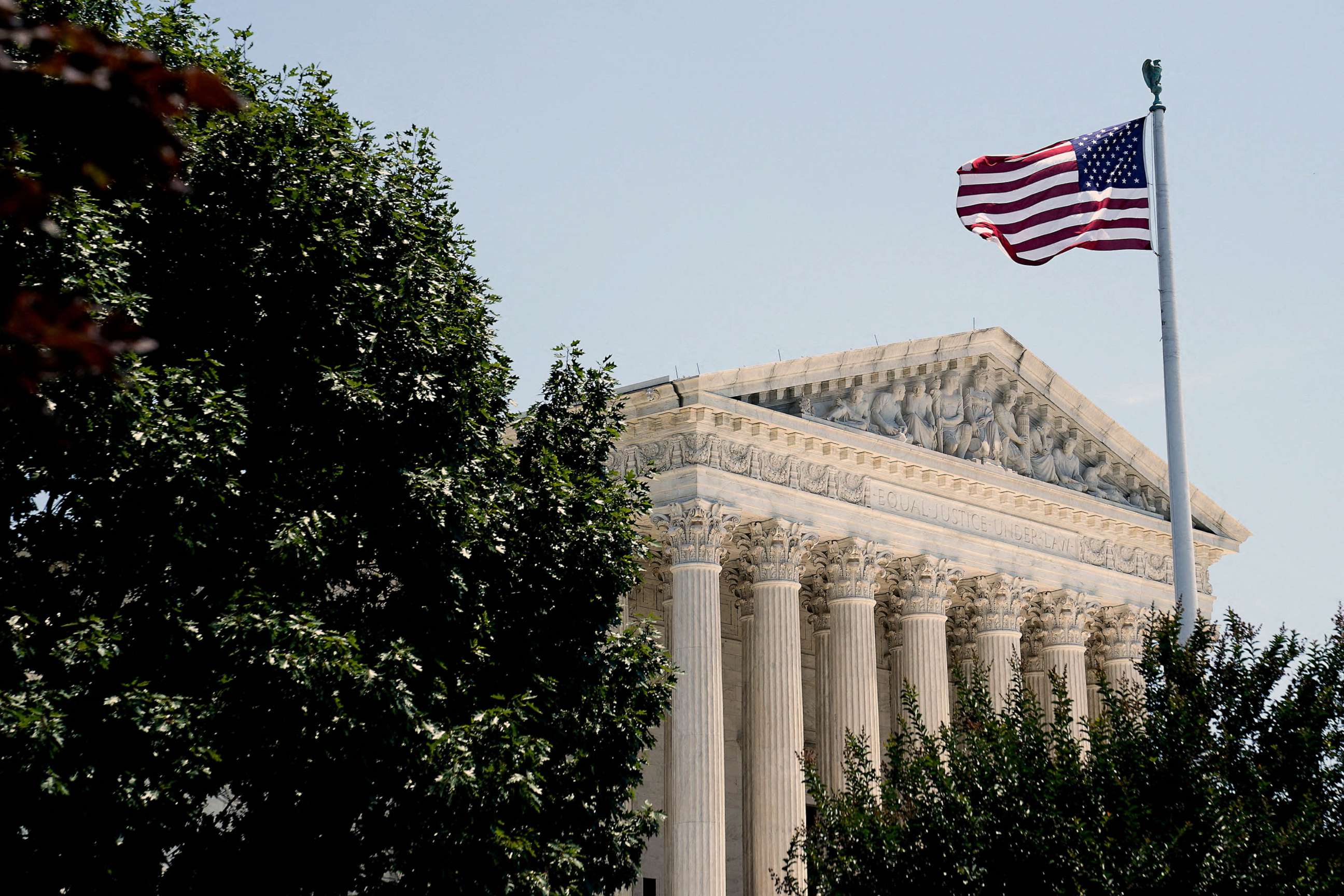Supreme Court extends stay on Texas abortion pill ruling until Friday
Justice Alito's temporary stay was set to expire at the end of Wednesday.
The Supreme Court on Wednesday extended a temporary stay to maintain the Food and Drug Administration's approval of the abortion pill mifepristone amid ongoing litigation.
The administrative stay will be in place until the end of day Friday.
The decision came just hours before a midnight deadline from Justice Samuel Alito, who last Friday had granted a temporary, five-day pause of an unprecedented Texas order deeming the drug unsafe.
It's the latest development in a fast-moving legal battle over mifepristone, a critical oral medication used in the most common method of abortion in the U.S.

Judge Matthew Kacsmaryk of the Northern District of Texas suspended FDA's approval of mifepristone on April 7, marking the first time a court invalidated the agency's calculation of a drug's safety and effectiveness.
A federal appeals court panel partially blocked Kacsmaryk's unprecedented ruling but still imposed restrictions that prevent mifepristone from being sent to patients by mail.
The Biden administration had asked the U.S. Supreme Court for an emergency stay, stating the appeals court ruling would put the FDA in an "impossible position."
"Absent a stay, the lower courts' unprecedented nationwide orders would scramble the regulatory regime governing a drug that FDA determined was safe and effective under the approved conditions and that has been used by more than five million American women over the last two decades," Solicitor General Elizabeth Prelogar wrote to the court on Tuesday.
Alliance Defending Freedom, a conservative legal group representing the pill's opponents, dismissed the agency's claims about the impact of suspending access to the abortion pill as a "sky-is-falling-argument."
"The lower courts' meticulous decisions do not second-guess the agency's scientific determinations; they merely require the agency to follow the law," lawyers for the group told the court.




